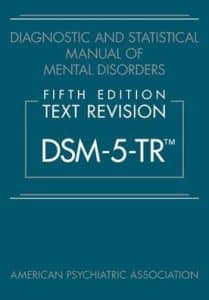The DSM: Is it time to evolve?

Clinicians rely on the Diagnostic and Statistical Manual (DSM) every day and many people refer to it as the “bible” of psychiatry. Upon searching the internet for the current price of the DSM V-TR, I unexpectedly encountered some humorous reviews on Goodreads. Some examples, “Terrible plot, no character development” as well as, “I was able to successfully diagnose my mom, dad, sister, and chihuahua. The latter being the most difficult to manage when it comes to behaviors and psychological needs.”
Despite these lackluster reviews, the current cost of the DSM is about $153 and it is in the top 10 bestselling books in Medicine on the Amazon website. Considering that it is a top seller and that many hard-working scientists and academicians have labored to create the DSM and its multiple revisions, there are still a lot problems with it. This is not new information, Allen Francis, who was the head of the DSM IV task force, declared DSM-V as “the most unhappy combination of soaring ambition and weak methodology” in a 2009 editorial published in “Psychiatric Times.”
Fast forward to 2024, researchers Lauren Davis and her colleagues published a cross-sectional study in the “British Medical Journal” demonstrating that financial conflicts of interest were prevalent among many of the panel and task force members involved with DSM-V-TR.
Of the 92 panel and review task force members who were physicians based in the United States, nearly 60% (55 individuals) had financial conflicts of interest and were paid a collective total $14.2 million dollars by industry between 2016 and 2019. The greatest proportion of the payment was allocated to research funding yet interestingly, research funding was excluded from the DSM-5’s financial disclosure policy! To borrow a line from Justice Sonia Sotomayor, perhaps the DSM should not survive “the stench” that this conflict of interest creates?
In addition to research funding, payments were made to DSM panel members for food and beverage, travel, and consulting. People working in academic settings often make modest salaries relative to peers in industry. The opportunity to travel on the corporate budget of the pharmaceutical industry can be extremely gratifying. The only time I have ever flown first class, was on the dime of a pharmaceutical manufacturer to Athens, Greece for an international research study kick off meeting. Flying first class and seeing the Parthenon was very cool and I don’t fault academicians for accepting research money from industry. A great deal of critical research might not get accomplished without such funding.
But people who participate in creating the DSM are chosen precisely because they are considered “thought leaders.” Panel and review task force members have the power to create, as well as eliminate, diagnostic categories. Changes in the DSM directly influence prescription practices and can even lead to diagnostic epidemics (who remembers the widespread use of multiple personality disorder diagnosis?? Practitioners have the right to expect that panel and task force review members are free from bias and those with industry ties should not have “voting rights” or decision-making ability in terms of what diagnoses are created, eliminated, or changed.
Beyond the financial conflicts of interest, DSM field trials are often not generalizable to clinical practice. There is a large gap between the lived experience of clinicians in practice and university researchers who conduct field trials to test the validity and reliability of diagnoses among volunteer study participants. In the community setting, patients with the same diagnosis often vary widely in presentation. Moreover, symptom categories overlap, making it difficult to reliably diagnose many psychiatric conditions. There is great variability in clinical practitioners in terms of their training and orientation, leading to overdiagnosis, underdiagnosis and a plethora of false positives of various mental health diagnoses.
The DSM has helped to create a flawed mental health system that forces clinicians to pathologize people who suffer with life problems. Insurance payment requires that therapists apply a diagnosis to get reimbursed. Case in point: insurance does not reimburse for V codes (other conditions that may be a focus of clinical attention) or Z codes (social determinants of health). A child in foster care could be labeled with V code 61.7, “Upbringing away from parents” but this diagnosis alone is not reimbursable through most commercial insurance plans.
How is it acceptable in our society that health plans are not required to cover counseling for children in foster care, unless the clinician attaches an additional psychiatric diagnosis such as depression? Should not the V code be enough to warrant reimbursement to the treating clinician? Diagnostic labels have a way of becoming self-fulfilling and may follow the child until adulthood.
Despite the many problems with the DSM and its application, clinicians in practice are stuck with our current psychiatric diagnostic system for the time being. Other efforts are underway. There is a large consortium devoted to advancing HiTOP or the Hierarchical Taxonomy of Psychopathology (evidently no one consulting a marketing specialist about this name).
Hopefully, HiTOP or other similar efforts will advance our conceptualization of psychiatric symptoms and contribute to an evolved framework for understanding mental health problems. But it should not take decades to develop a better framework for psychiatric diagnosis. The pivot to a widespread adoption of telehealth during the pandemic has demonstrated that it is possible to make changes quickly in medicine when there is a will to do so. As clinicians, we need to involve ourselves in contributing to the evolution of how we conceptualize and diagnose psychopathology.
